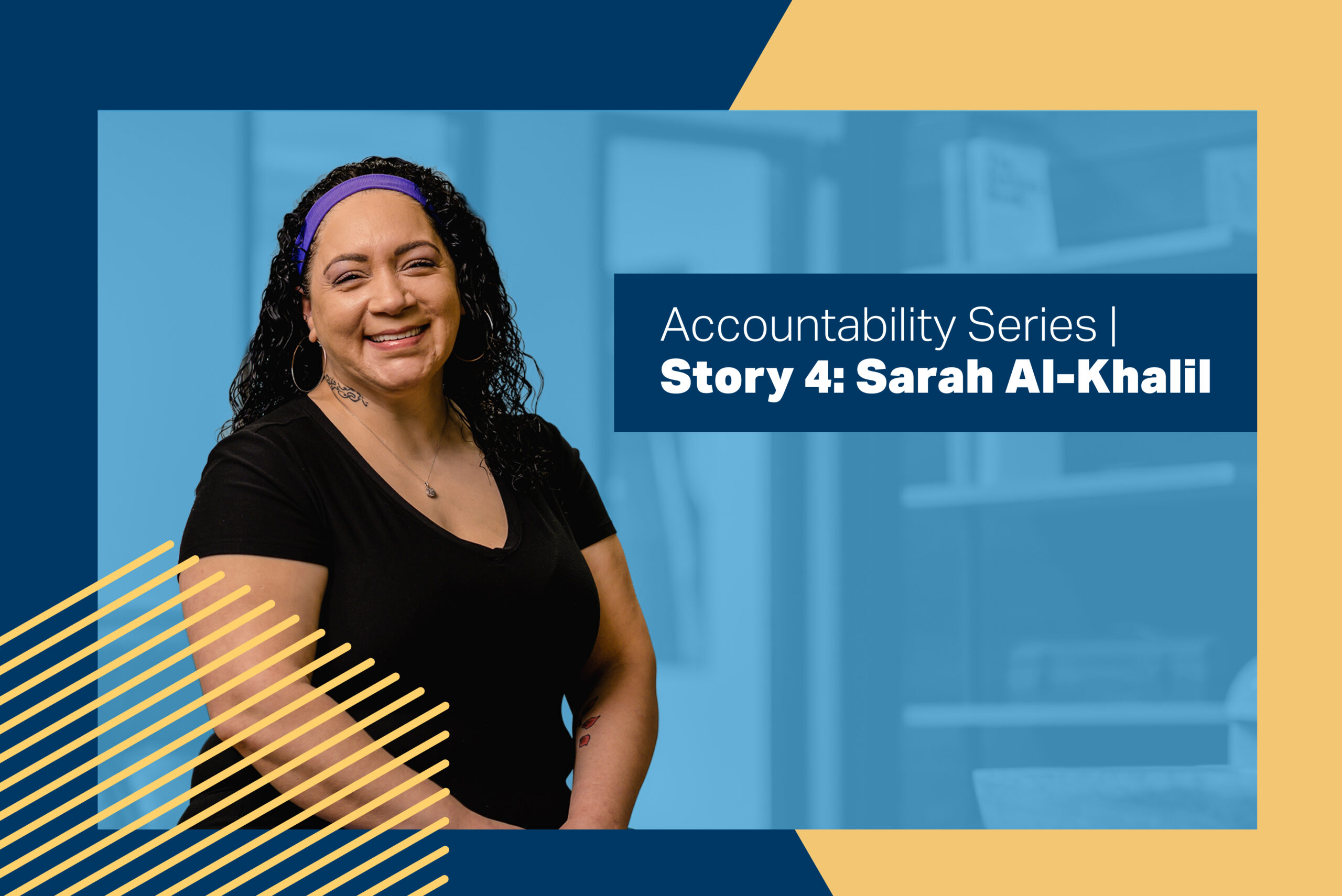Year in Review: 2022 at Pallet
December 21, 2022
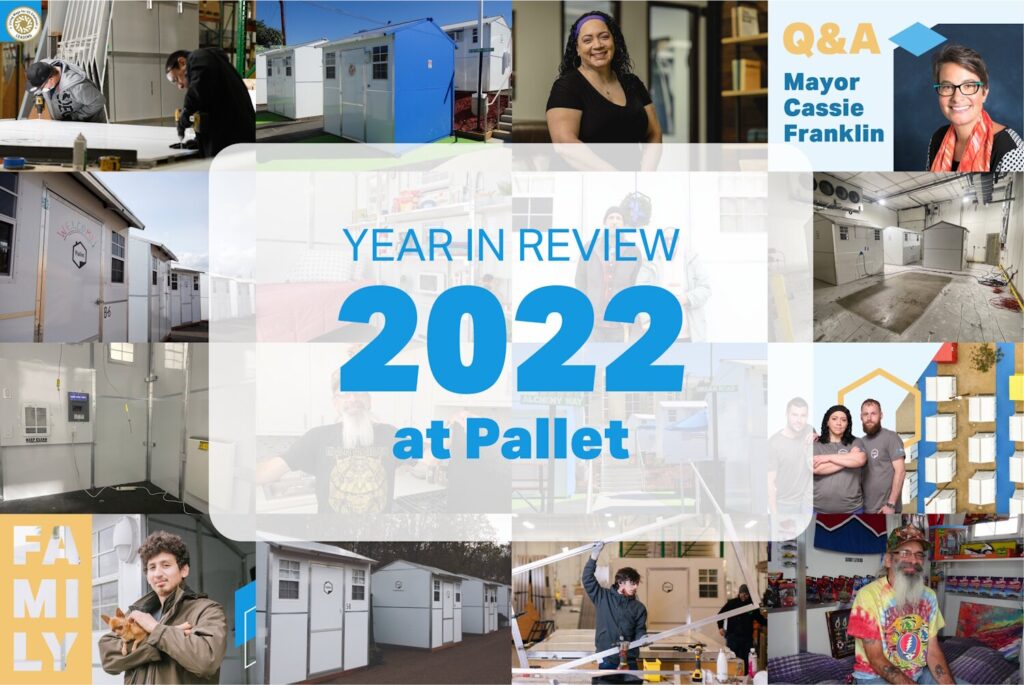
As the year ends, we’re looking back at the stories we’ve shared throughout 2022. It’s been another year of growth, and we’ve evolved as a company — we’re now a Public Benefit Corporation and a certified Living Wage Employer. We’ve also expanded our footprint by building Pallet shelter villages in the northeast.
Notably, hundreds more people experiencing homelessness are staying in dignified shelter with a locking door and have access to social services. They can now stabilize and are working towards moving into permanent housing with the assistance of an on-site service provider. This year the Pallet model helped people such as Tim and others move out of temporary shelter and into their own homes.
Here’s a round-up of our top stories from this year.
1. Tim’s story: From a Pallet shelter village to housing
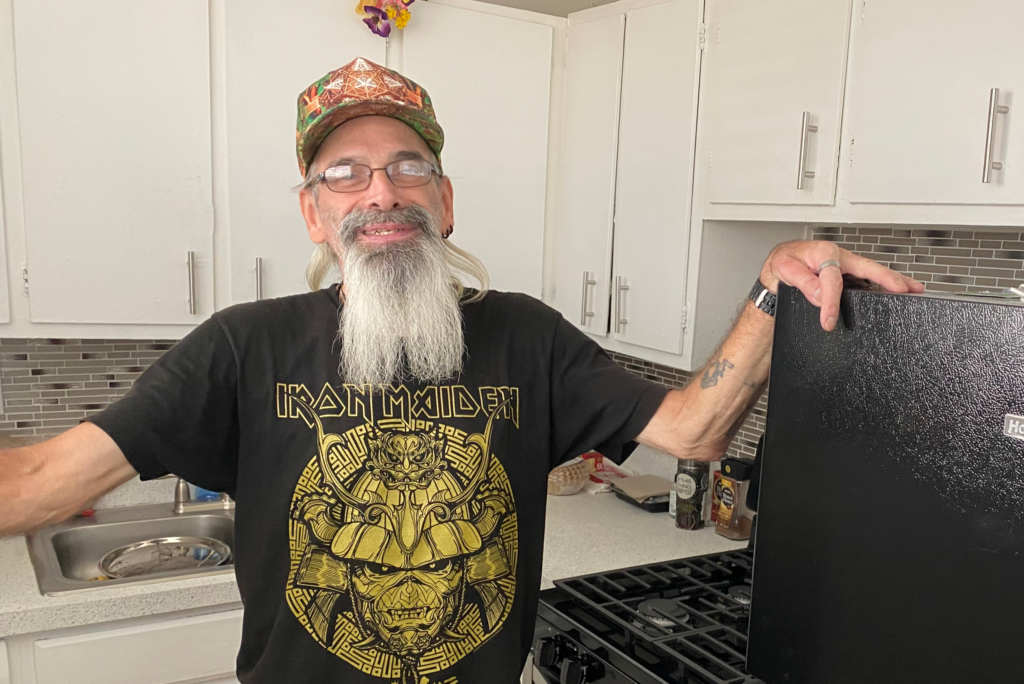
Tim became homeless after a series of distressing events. First, he lost his job, then the apartment building he lived in was sold. His lease wouldn’t be renewed, leaving him with 30 days to find a new place.
“Covid knocked on our door a couple of months after that, and it’s just been one speed bump after another that has culminated in where I am right now,” he shared. Tim went on to stay at a mass congregate shelter with hundreds of other people. Next, he moved to the Safe Outdoor Space (SOS), which has 56 Pallet shelters. “This is way better. You have your own key. You have four walls that you can lose yourself in or whatever, and you can ride out whatever unpredictable in your life, save up some cash and move on to your next step.”
Stabilizing in a safe, secure space positively impacted Tim’s life. After accessing social services, Tim moved into an apartment at the beginning of October. [Keep Reading]
2. A supportive little friend: Juan and Pepe
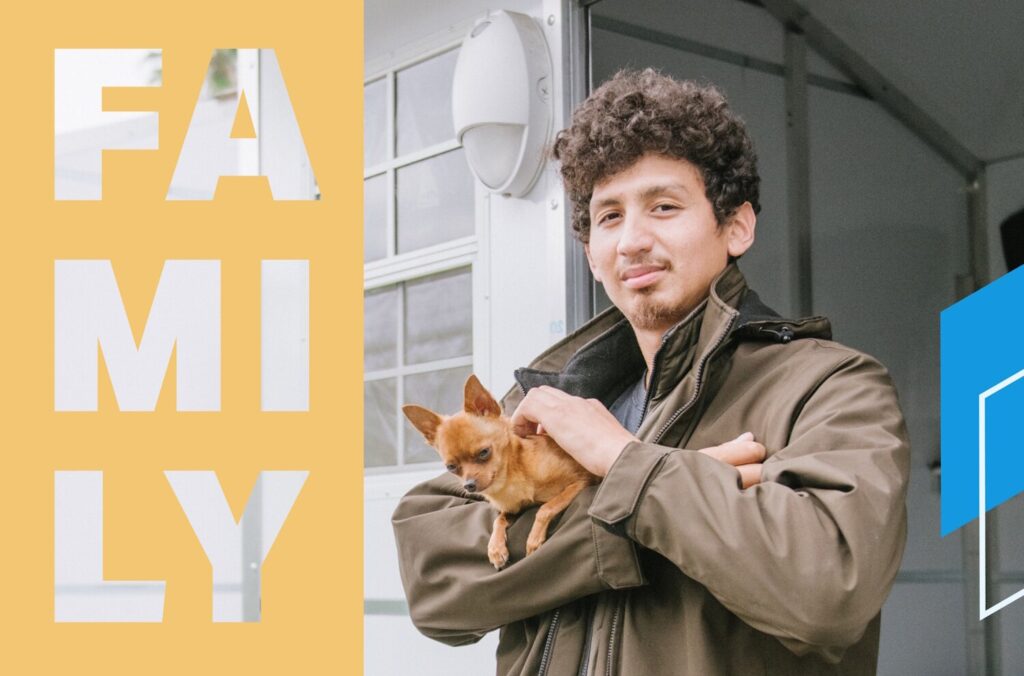
If you’re looking for Pepe – a tiny tan chihuahua – you may miss him at first. His favorite place to hide is Juan’s zip-up jacket. Pepe’s tiny head occasionally pokes out, just far enough to get ear scratches and peek around.
Juan, Pepe’s owner, loves to keep him close for cuddling. The duo first met a few months ago, in a tough time in Juan’s life. [Keep Reading]
3. Building community in Vancouver, WA
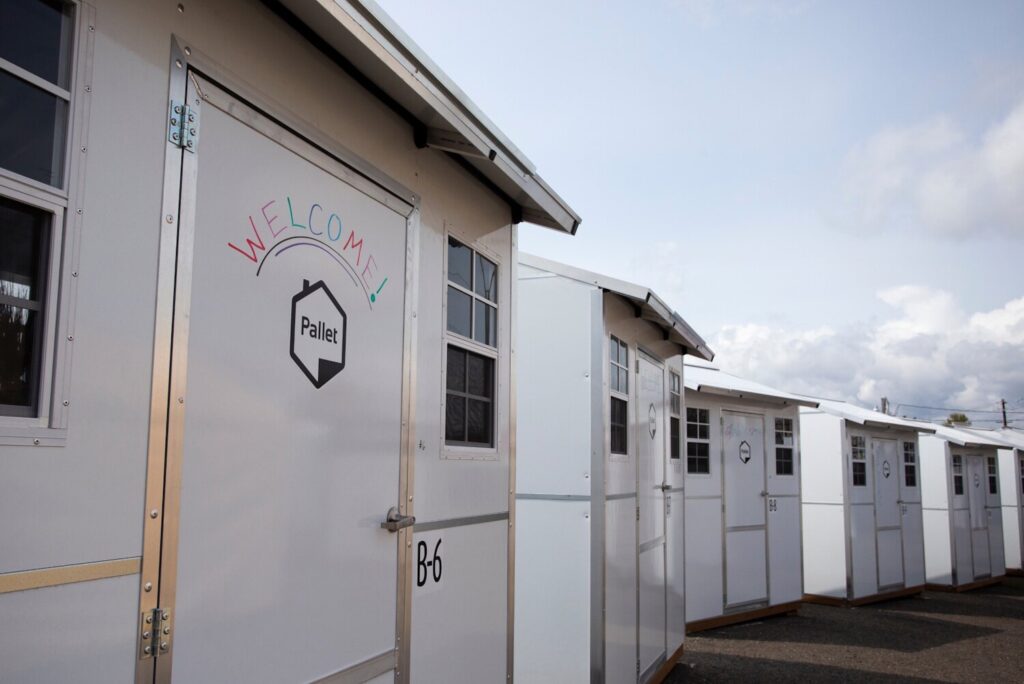
Recently Jerry and Sharon celebrated 26 years of marriage. This year they had more to commemorate than just lifelong companionship. At the same time last year, they lived outside and slept in a tent. The couple moved into Safe Stay Community, a Pallet shelter village in Vancouver, WA, when it opened in December 2021. The relocation was especially timely because of an unforgiving Pacific Northwest winter.
“It’s great compared to a tent. Heat’s good, especially in December when it’s colder than heck. Or April when it snows,” Sharon said. “And windstorms. We had a big windstorm that was taking tents down, but it never took ours down.”
“It’s a God send,” Jerry added. [Keep Reading]
4. Q&A: Mayor Cassie Franklin on addressing unsheltered homelessness
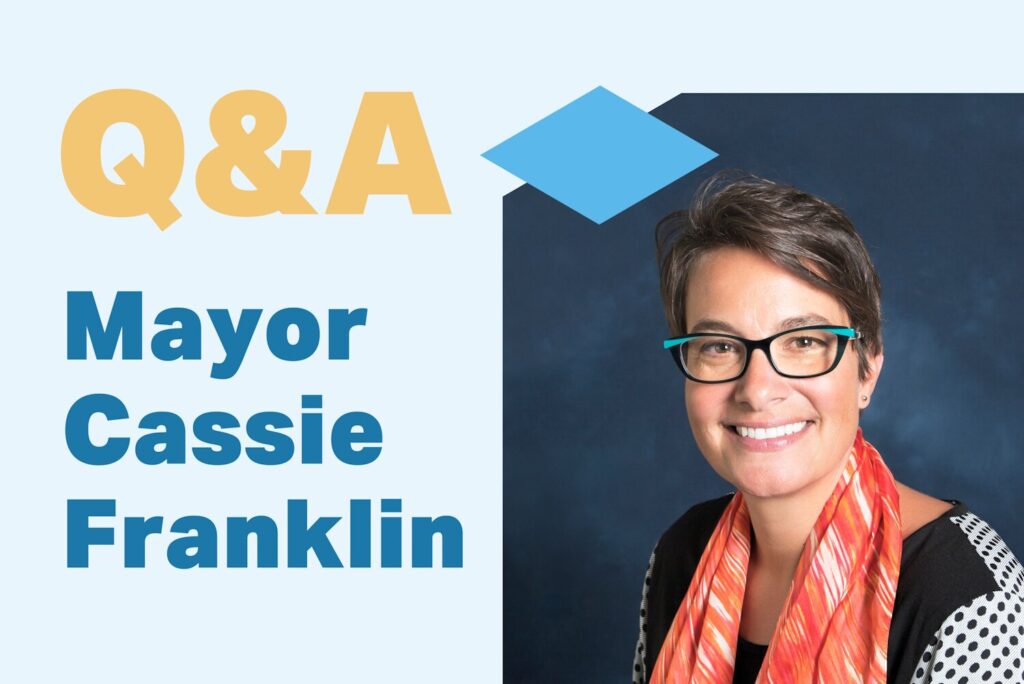
Pallet shelter villages are transitional communities for people experiencing homelessness. They provide the dignity and security of lockable private cabins within a healing environment. Residents have access to a resource net of on-site social services, food, showers, laundry, and more which helps people transition to permanent housing.
There are more than 70 Pallet shelter villages across the country, including one near our headquarters in Everett, Washington, which opened one year ago. Everett Mayor Cassie Franklin was instrumental in bringing the site to life. We held a webinar to discuss the affordable housing crisis, why unhoused people don’t accept traditional shelter, and the steps the city of Everett took to build a Pallet shelter village. Mayor Franklin provided good insight into these issues. Before becoming an elected official, she was the CEO of Cocoon House, a nonprofit organization focused on the needs of at-risk young people. [Keep Reading]
5. Change is possible, just ask Sarah
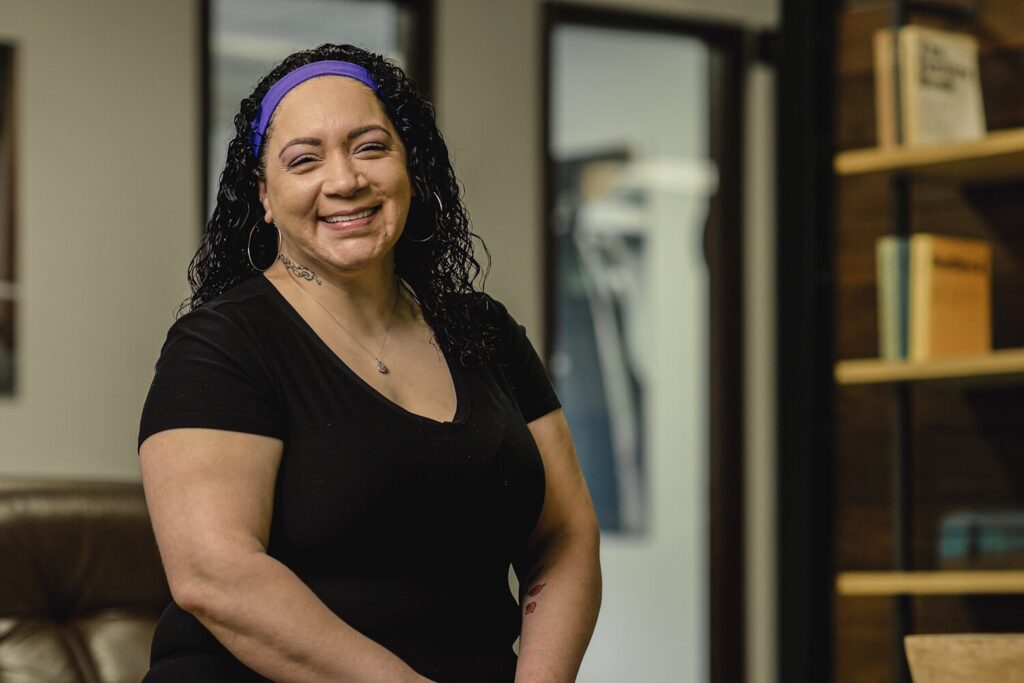
When Sarah sets her sights on a goal, she’ll inevitably be successful. Being resourceful and determined has served her well. Sarah joined Pallet as a Manufacturing Specialist at the beginning of the year. Joining the team was a full-circle moment. She vividly remembers seeing our shelters in downtown Portland a couple of years ago. In a short time, Sarah has made an impact working at Pallet. Working in the factory was a bit of an adjustment at first, particularly standing on her feet for long hours. Still, she got used to it and quickly excelled at the various steps of building Pallet shelters.
“They were bouncing me around to all the stations, and the supervisors kept saying, ‘normally people need to stay at a station for a certain amount of time before we move on, but you’re learning really quickly,'” she shared. “It helped give me that motivation and confidence.”
Within a few months, Sarah was promoted to Customer Service Coordinator, a new position on the Community Development team. [Keep Reading]
6. Building community at Westlake Village
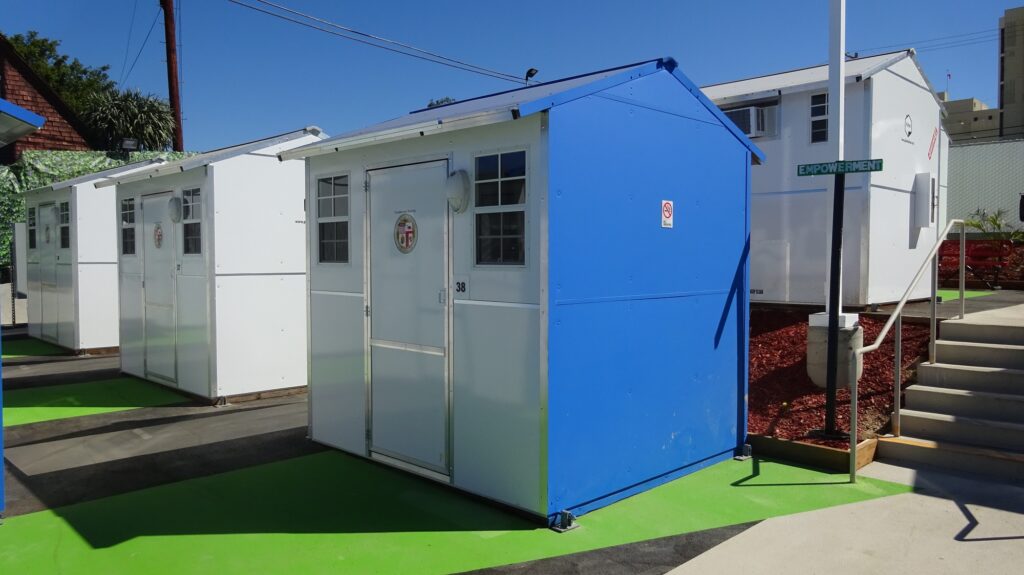
Two photos hanging from a fence greet visitors when walking into Westlake Village in Los Angeles. One has a placard underneath reading “Guest of the Month.” The other is titled “Employee of the Month.” The rotating designation encapsulates the spirit of the village and its values – building community, sharing positive feedback, and celebration.
The community of 60 colorful Pallet shelters and street signs is a transitional place for people experiencing homelessness. Residents have access to a resource net of social services, meals, hygiene facilities, laundry, and more. Urban Alchemy (UA) — a social enterprise engaging with situations where extreme poverty meets homelessness, mental illness, and substance use disorder — is the service provider for the site.
“My heart and compassion for the homeless population is huge. I believe that this is my calling,” shared Wanda Williams, UA Deputy Director of Residential Services. “We’re preparing them now for what may be next.” [Keep Reading]
7. Pallet achieves new status: Public Benefit Corporation
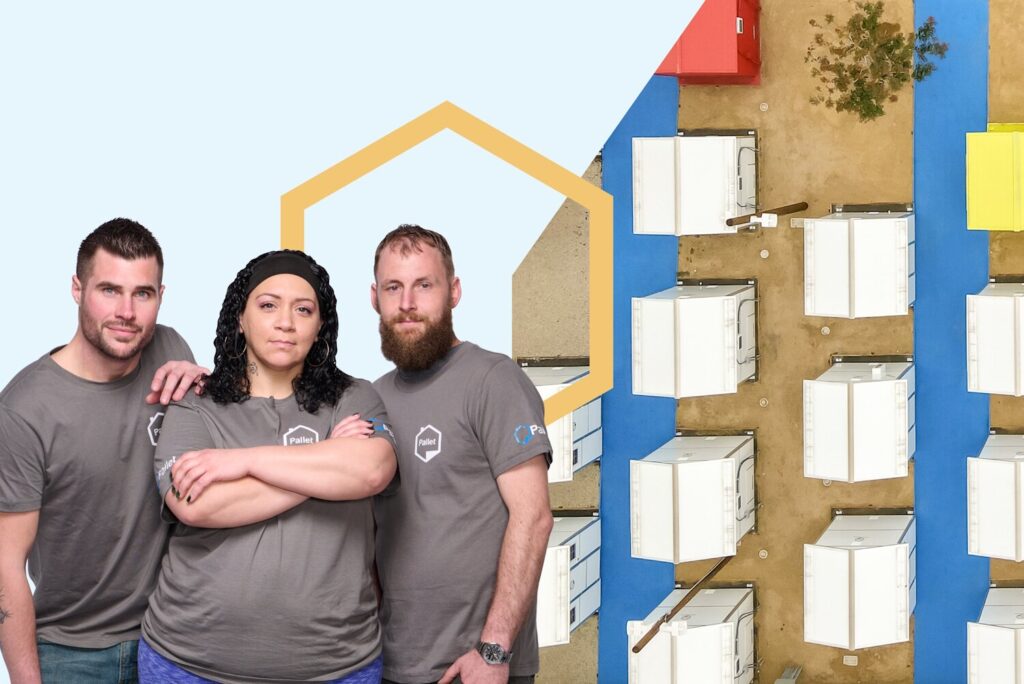
Pallet began in 2016 as a Social Purpose Company (SPC), the Washington state equivalent of a B corporation. As of 2022, we’re proud to announce that we’ve transitioned to a Public Benefit Corporation (PBC). It means we use profitability to expand our impact. As our business grows, the more jobs and shelter villages we can create to end unsheltered homelessness. The change reflects our growth as a company. PBCs are widely recognized across the country. More than 30 state legislators passed PBC statutes to make it easier for private businesses to establish themselves as a PBC or transition to one.
Think of a PBC as a hybrid of a nonprofit and for-profit organization. Our investment partners have allowed us to scale up quickly to meet the needs of the homelessness crisis. [Keep Reading]
8. Pallet is a certified Living Wage Employer
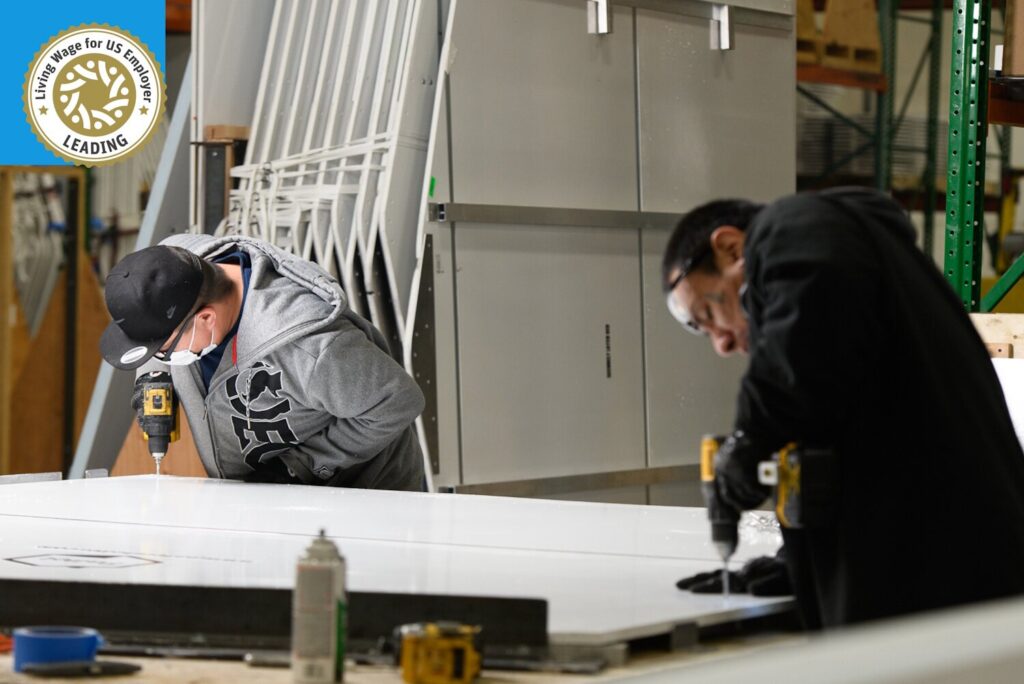
Investment in human potential is a core component of our mission. People who live in Pallet shelter villages are a part of a community where they have access to a resource net of social services, which enables them to transition to permanent housing. We’ve created a purpose-driven environment where employees are supported, and learning is encouraged.
As part of our commitment to creating sustainable jobs, we’re proud to announce Living Wage for US certified Pallet as a Living Wage Employer. The nonprofit organization granted the status after analyzing Pallet’s cash wages and benefits paid to employees. Third-party validation is another step for us to show business can be a force for good. [Keep Reading]
9. From second chance to fair chance: Why we’re changing our language
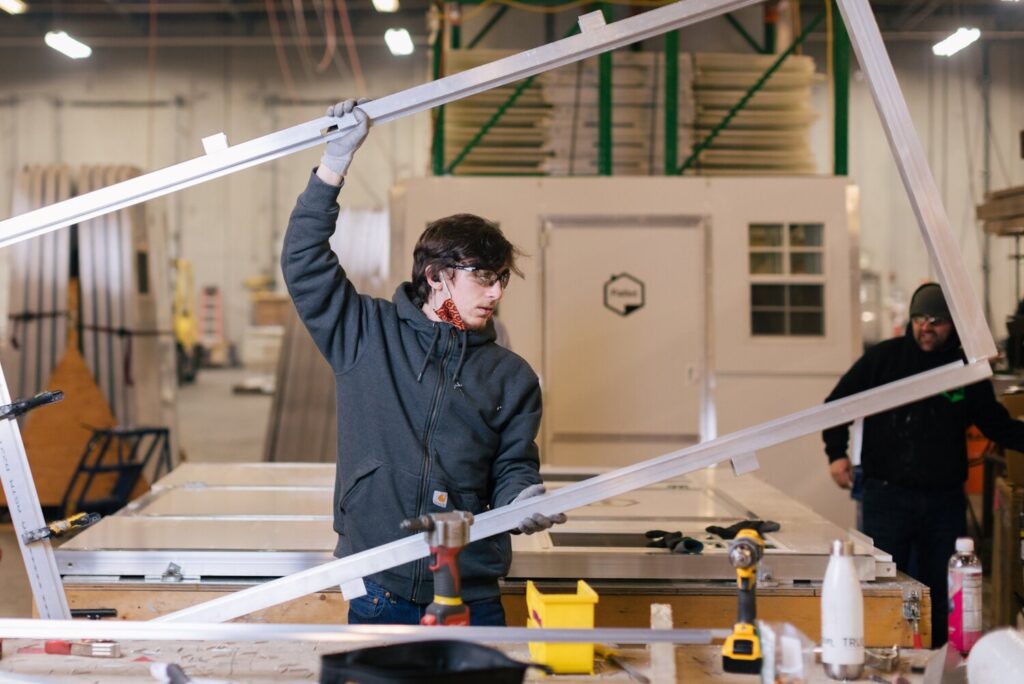
Language is ever-evolving. As society changes and grows, the words we use or stop using reflect who we are. At Pallet, we continually evaluate whether we’re using inclusive, destigmatizing language. We speak and operate in a way that mirrors our values.
Since our inception in 2016, we’ve identified ourselves as a second chance employer. At the time, it was a commonly used term to describe companies like us that aimed to build a nontraditional workforce. We focused on an applicant’s potential, not their past. As a result of this decision, it helped us design and manufacture shelter solutions firmly rooted in lived experience. But the term second chance employment doesn’t fit. It implies everyone has access to the same opportunities in life and squandered their first chance.
10. How Pallet shelters are tested for cold conditions
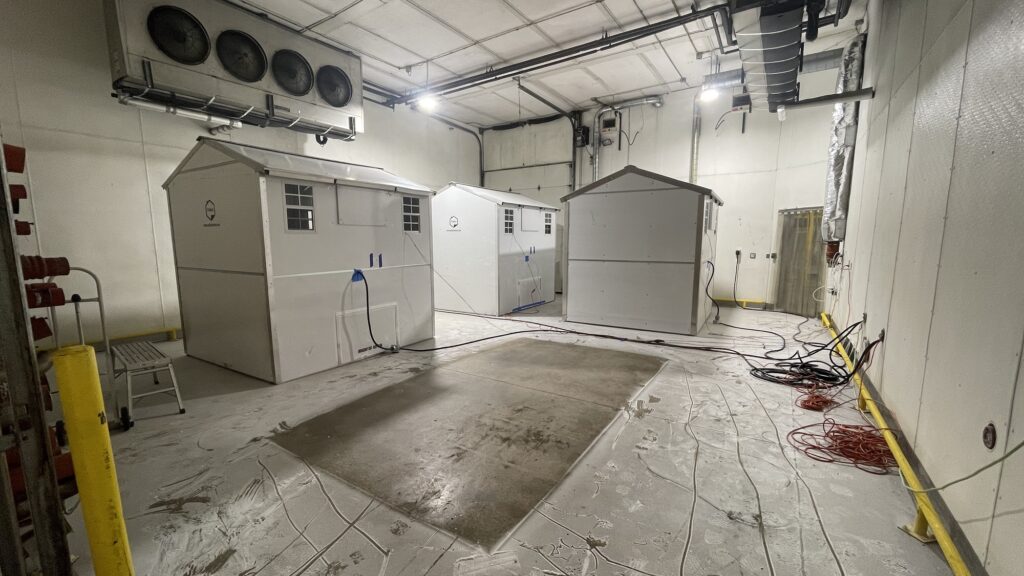
As part of our commitment to provide dignified space for people experiencing homelessness, we are continually improving our shelters. Conducting tests is one way to ensure Pallet shelter village residents are comfortable inside their cabins and safe from the elements. Recently two members of Pallet’s engineering team — Jordan, Design Engineer, and Jessie, CAD Designer — oversaw an independent assessment of our heaters and the 64 sq. ft. and 100 sq. ft. shelters. Specifically, we wanted an additional analysis of thermal efficiency in cold weather and the power consumption of the heaters.
Testing took place over four days at the SGS facility in Colorado. The shelters were placed inside a chamber that could reach -10 degrees Fahrenheit. [Keep Reading]

